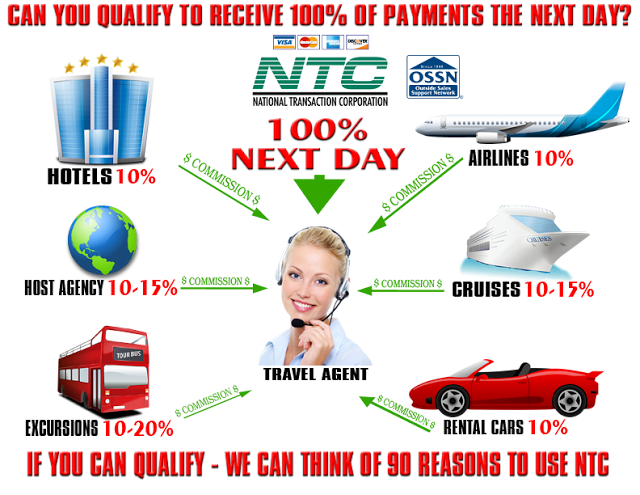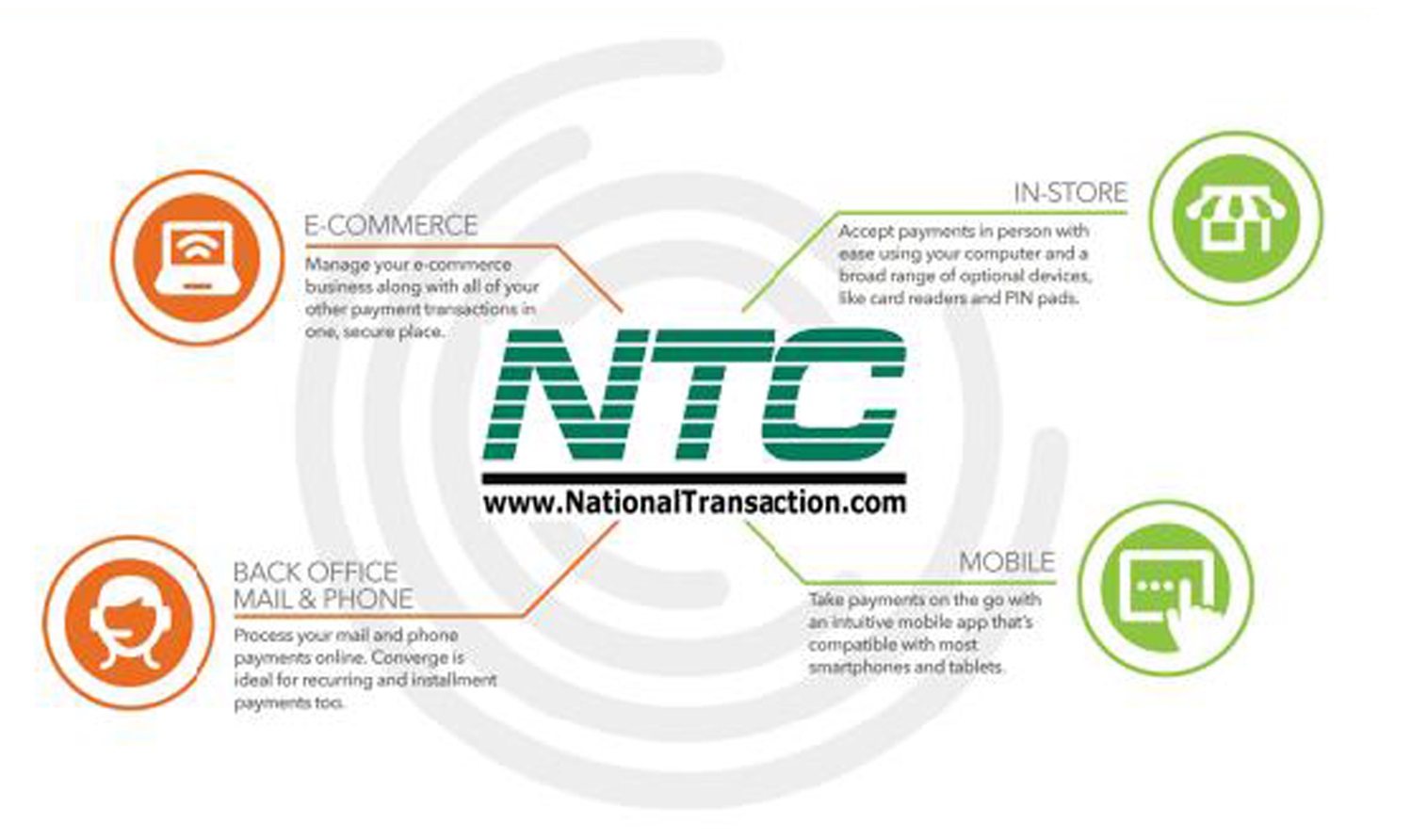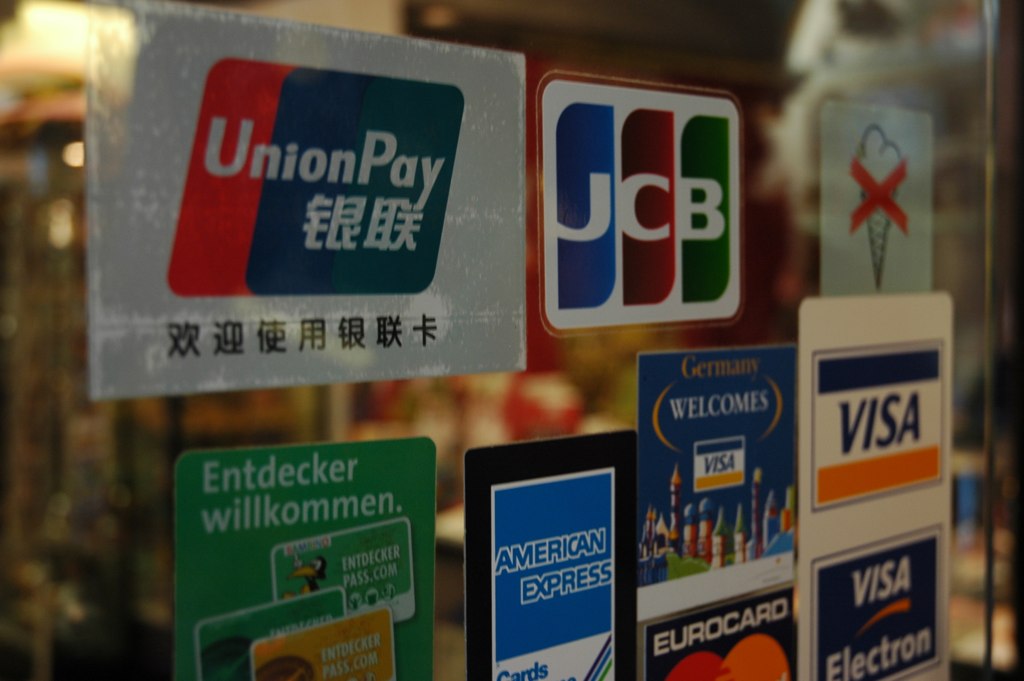Category: Best Practices for Merchants

May 20th, 2016 by Elma Jane
NATIONAL TRANSACTION WILL BE ATTENDING THE ASTA GLOBAL CONVENTION 2016 in Reno Tahoe, September 25-28. NTC BOOTH #92 SEE YOU ALL!
Posted in Best Practices for Merchants

May 19th, 2016 by Elma Jane
Transaction laundering, the new face of payment fraud is increasing and getting popular in the world of e-commerce.
Studies revealed that there are as many as 6% to 10% of additional unauthorized e-commerce sites that banks may be processing without their consent or awareness. A digital version of money-laundering, engaging in illicit commerce while using legal means to get paid.
Transaction laundering is another form of money-laundering and it is illegal.
Detecting fraudsters are becoming a major challenge not only for banks but financial service organizations like payment service providers as well. There have been dozens of cases where legitimate-looking websites were caught selling illegal products.
Acquirers, banks, and other institutions focused on websites as the central of transaction laundering while the mobile era has opened up a new ground for scammers to operate in. They provide new opportunities for fraudsters to do their work by routing payments for illicit goods and services through their own legitimate front accounts.
Mobile wallet apps, NFC chips, and payment apps are some of the new ways payments are being collected. Not to mention opening up an on-line storefront using web tools, which anyone can do is very easy.
Micro-merchants expansion of doing business on-line and the greater reach they have now to mobile technology, business opportunities for scammers doing transaction laundering have never been better.
It is important for the industry to know what is happening, and how great the risks are. It’s a new challenge for the payments industry, learning and educating ourselves on those dangers is a priority.
Posted in Best Practices for Merchants Tagged with: banks, e-commerce, financial service, fraud, merchants, mobile technology, mobile wallet, nfc, payment, payment service providers, payments industry, transaction

May 18th, 2016 by Elma Jane
Terminals are ready, but the software isn’t – many merchants have EMV capable equipment, but has not been activated yet because it still needs to be certified.
The certification process includes security and compatibility tests.
For a small merchant, all you need to worry about is your equipment or software is EMV certified.
For software, developers, terminal manufacturers needs to get certification before they can deploy their products to merchants.
So many merchants who want to accept EMV, are now just waiting for their POS system to get necessary upgrades, which they can’t do until they’re certified.
Slower Checkout Time – common complaint by consumers. Dipping takes several seconds longer than swiping the card. There’s also a chance of forgetting your card because you have to leave your card inserted while waiting for the transaction to get approved.
The fastest Path to EMV – Depending on the nature of your business, the risk of landing yourself for credit card fraud is slim. The easiest way is to contact your merchant account provider and they will tell you what equipment and software you need and how much it will cost.
For our retail customers, we have the iCT250, the smart and compact desktop device designed for maximum efficiency. iCT250 offers a smart and effective payment experience on minimum counter space. Accept all electronic payment methods including EMV chip & PIN, magstripe and NFC/contactless.
For card-not-present, we have our payment gateway platform that accepts payments your way Online, In-Store and On the Go.
- E-commerce – manage your e-com business along with all of your other payment transactions in one, secure place.
- In-Store – accept payments in person with ease using your computer and a broad range of an optional device, like card readers and PIN pads.
- Back Office Mail & Phone – Process you mail and phone payments online. Converge is ideal for recurring and installment payments too.
- Mobile – Take payments on the go with an intuitive mobile app that’s compatible with most smartphones and tablets.
For more details give us a call at 888-996-2273 or check out our website for our products and services.
Posted in Best Practices for Merchants, Credit Card Reader Terminal, e-commerce & m-commerce, EMV EuroPay MasterCard Visa, Internet Payment Gateway, Mail Order Telephone Order, Merchant Account Services News Articles, Mobile Payments, Near Field Communication, Point of Sale, Smartphone, Travel Agency Agents Tagged with: card, card readers, Chip & PIN, consumers, contactless, credit card, customers, e-commerce, electronic payment, EMV, fraud, in-store, magstripe, merchant account, merchants, mobile, nfc, online, payment, payment gateway, PIN pads, POS, provider, Security, terminals, transaction

May 17th, 2016 by Elma Jane
Businesses run the risk of fraud, but some are more likely to be targeted than others.
Simply being aware that you are operating at a higher risk than normal and putting up your defenses can help you protect your business from online fraud.
By learning more about the types of online fraud, you could experience what to do if you expect a fraudulent transaction. You can also mitigate your risk, even if you sell high-risk items to high-risk customers.
Posted in Best Practices for Merchants, Travel Agency Agents Tagged with: customers, fraud, high risk, online fraud, risk, transaction

May 16th, 2016 by Elma Jane
Visa Europe has seen a significant increase in the number of contactless payments (card-present transaction) that it has processed this year, it nearly tripled to three billion.
Visa Europe attributed this increase to merchants integrating tap and pay into their checkout process.
This significant increase was largely due to London’s adoption of contactless technology. The contactless payments were also attributed to the launch of Apple Pay, urging consumers to adopt new payment methods.
Setting the stage for tomorrow’s technology, like wearable devices and mobile payment services making today’s achievement possible.
Posted in Best Practices for Merchants Tagged with: card present, consumers, contactless payments, merchants, mobile payment, ontactless technology, payment methods, services, transaction, visa

May 13th, 2016 by Elma Jane
Getting new clients are one of the most time-consuming and expensive parts of running a travel agency.
Here are some travel agency marketing tools that are cost-effective and time-saving to help you.
E-Marketing – email marketing is a key to connecting with your customer on an ongoing basis. You want to make sure you’re in touch since they could plan a trip on a moment’s notice.
Personalized Email Addresses – Gmail is one of the top lists of a free travel agency marketing tool. Gmail is easy-to-use and effectively manages your inbox with labels.
- Gmail is free as long as you have less than 10 email users and each user sends less than 500 emails per day.
- Use your personalized travel agency domain name email address instead of gmail.com.
- Promote your travel agency name using YourName@YourAgencyWebsite.com email address.
CRM Tool – a salesperson’s success usually can be traced back to an efficient sales process. The sales process is the method of sales person takes a perspective customer from lead to a sale.
- Online CRM (Customer Relationship Management) tool can help you manage that process and help you close that sale.
- CRMs are an investment and are an essential travel agency marketing tool.
Website Live Chat – free instant messenger client, a great travel agency marketing tool.
- Choose to interact with the visitor to answer their questions.
- Promote it as another channel existing clients can reach you.
- There’s also a free iPhone app, so you can interact with clients on the go. All for free!
Posted in Best Practices for Merchants, Travel Agency Agents Tagged with: crm, customer, travel, travel agency

May 12th, 2016 by Elma Jane
Electronic commerce (eCommerce) is a type of business transaction, that involves the transfer of information on the Internet. This allows consumers to exchange goods and services with no barriers of time or distance electronically.
Business-to-Business (B2B) this refers to electronic commerce, between businesses rather than between a business and a consumer. These transactions electronically provide competitive advantages over traditional methods. It’s faster, cheaper and more convenient.
Creating a successful online store can be difficult if you don’t have knowledge of e-commerce and what it is supposed to do for your online business.
What do you need to have an online store?
- Shopping cart – an operating system that allows consumers to buy goods and or services. Track customers, and tie together all aspects of e-commerce into one.
- Or you can check out our NTC e-Pay no shopping cart Solution.
- Taking online payment by getting a merchant account and accept credit cards through an online payment gateway.
You just need to make a better decision in choosing the right shopping cart and a merchant account for your eCommerce shop.
Posted in Best Practices for Merchants, e-commerce & m-commerce Tagged with: b2b, commerce, consumers, credit cards, customers, ecommerce, gateway, merchant, merchant account, NTC e-Pay, online, online payment, payment gateway, shopping cart, transaction

May 10th, 2016 by Elma Jane
What is (AML) Anti-Money Laundering?
Anti-money laundering (AML) is a set of regulations designed to stop the practice of generating income through illegal actions.
AML regulations place an obligation on financial institutions such as NTC to maintain accurate customer records to ensure they know who their merchants are and the nature of their business and that these institutions are not aiding in money-laundering activities.
Anti-Money Laundering (AML) Break Down:
AML laws and regulations target activities that include
- Corruption of public funds and evasion of tax, as well as all activities that aim to conceal these deeds
- Market manipulation
- The trade of illegal goods
Financial institutions are expected to comply with Anti-Money Laundering laws and make sure that clients are aware of these laws.
Posted in Best Practices for Merchants, Travel Agency Agents Tagged with: customer, financial institutions, funds, merchants

May 10th, 2016 by Elma Jane
To our retailer partners, you are now able to accept UnionPay Cards with National Transaction. No additional steps are required; when a client hands you a UnionPay card just swipe it like you would with any other credit card.
What is UnionPay?
UnionPay was established in 2002 and has become the central and pivotal part of China’s bankcard industry. UnionPay cards are being accepted in 150 countries and regions outside of China. Since 2010, the number of bankcard networking merchants, POS terminals and ATM machines accepting UnionPay cards has increased by 40%, 30%, and 31% respectively. Chinese tourists are a huge strategic market with big profits and great potential for merchants in the US. These cards are currently being accepted at many large companies in North America including Niemen Marcus, Walmart, and Hertz.
Thank you for your business. At National Transaction Corporation our goal is to provide merchants with payment solutions and service beyond their expectations. If you have any questions please contact our Customer Service Department at 888-996-2273.
Posted in Best Practices for Merchants, Credit card Processing Tagged with: bankcard, cards, credit card, merchants, payment, payment solutions, POS, terminals

May 9th, 2016 by Elma Jane
Preventing double refunds depend on the timing of the chargeback. It is a bit challenging, the key lies in attention to detail.
A chargeback may already exist for the transaction when a customer say they just spoke to their bank. Merchants must pay attention to this big clue.
There are different time limits for resolving disputes before they become actual chargebacks, depending on the issuing bank.
- If customers indicate they did contact their bank, merchants need to call the issuing bank to determine if a case number has been assigned to the transaction dispute.
- If there is a case number that has been assigned, the merchant can disregard the refund request.
If a case number has not been assigned, merchants need to inform the bank that a refund has been initiated and a chargeback is not necessary.
Preventing Double Refunds Before Chargebacks are Filed
Provide prompt refunds to customers when they are warranted.
- Estimate when the funds will be available.
- Let customers know that a refund has been issued.
- Take care to ensure the credit isn’t process as a debit.
Posted in Best Practices for Merchants, Travel Agency Agents Tagged with: bank, chargeback, credit, customer, debit, merchants, refunds, transaction








